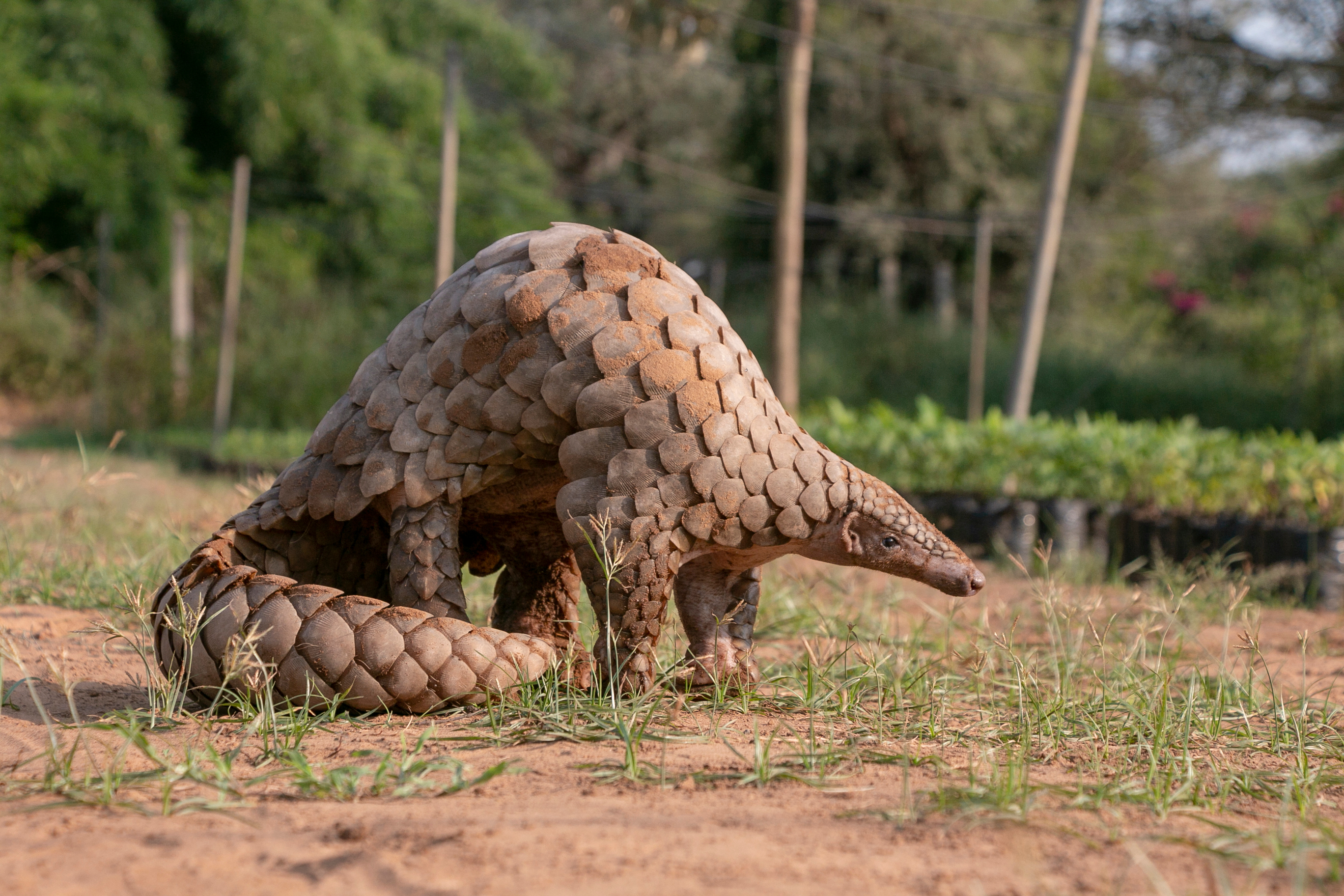Pangolins, the most trafficked mammals on the planet, could soon be protected under the US Endangered Species Act. These enchanting creatures aren’t native to the US, but the Fish and Wildlife Service (FWS) has recently proposed that seven species of pangolin in Asia and Africa should receive federal protection as a tool to solve the international wildlife trafficking problem.
The proposed ban includes four Asian species – Chinese, Indian, Sunda, and Philippine – plus three African species – white-bellied, black-bellied, and giant. The FWS has kicked off a 60-day public comment period, after which it will issue a final decision.
While pangolins are already protected under international agreements, like the Convention on International Trade in Endangered Species of Wild Fauna and Flora, this move could give the feds extra leverage to clamp down on trafficking.
Pangolins are small, nocturnal mammals that are covered in an armour-like shield of scales. They look similar to the armadillos you find in the Americas, although they are actually not closely related.
Another stand-out feature of pangolins is their long tongue, which is used to slurp up ants, termites, and other bugs. They typically live solitary lives and are shy creatures, rolling up into a ball to protect themselves when they feel under threat.
Sadly, pangolins are extensively poached for their meat and scales, which are falsely believed to carry medicinal properties. In reality, the scales contain little more than keratin, the same protein that makes up human hair and fingernails.

An Indian pangolin (Manis crassicaudata), a species native to… can you guess?
Image credit: Vickey Chauhan/Shutterstock.com
Because of their high value and protected status, the pangolin trade has fallen into the hands of organized crime groups. According to the FWS, profits from this trade can go on to fund other illicit activities, including drug trafficking and gun running.
“Pangolins are on the razor’s edge of extinction, and we need to completely shut down any US market for their scales. There’s no good reason for anybody to ingest any part of a pangolin,” Sarah Uhlemann, international program director at the Center for Biological Diversity, said in a statement.
A recent report by the Wildlife Justice Commission found that pangolin seizures started to significantly increase in 2015, peaked in 2019, and then declined sharply in 2020 during the COVID pandemic.
However, the black market is still booming. In April 2025, Nigerian authorities intercepted nearly 4 tons of trafficked pangolin scales, the equivalent of around 2,000 animals. In another major bust, Indonesian officials seized 1.2 tons of scales in a November 2024 raid.
China and Vietnam drive the most demand for pangolin scales, but the US plays a major role in the global trafficking network. According to the most recent publicly available data, US border officials seized 76 shipments of pangolin parts between 2016 and 2020, including scales sold for supposed medicinal purposes.
While conservationists have widely welcomed the announcement from the FWS, some are wondering what took them so long.
“Dragging its heels for no legitimate reason, the Fish and Wildlife Service is finally acknowledging the global scientific consensus that’s existed for more than a decade that pangolins – the most trafficked wild mammals – are in deep trouble and need our help,” commented Zak Smith, global biodiversity conservation director at the Natural Resources Defense Council.
“At the close of the public comment period, the Service should immediately finalize the listing, giving pangolins the protections they deserve,” he added.
Source Link: Pangolins, The World’s Most Trafficked Mammal, May Soon Get Federal Protection In The US